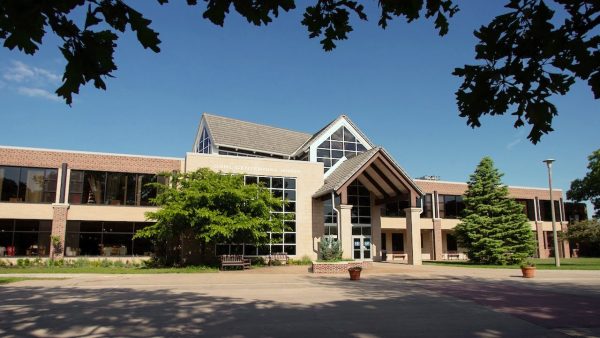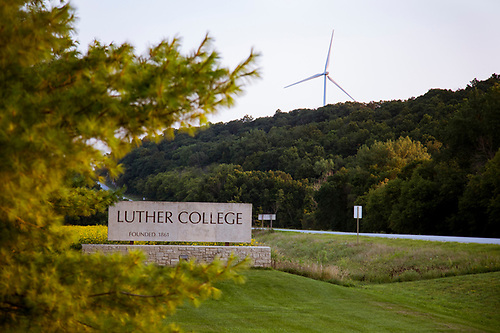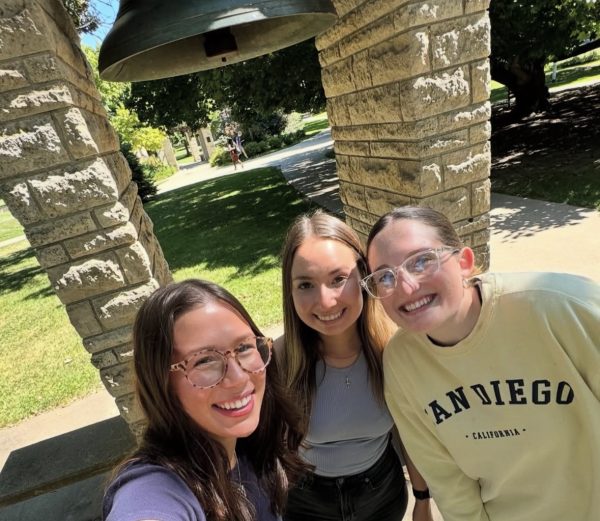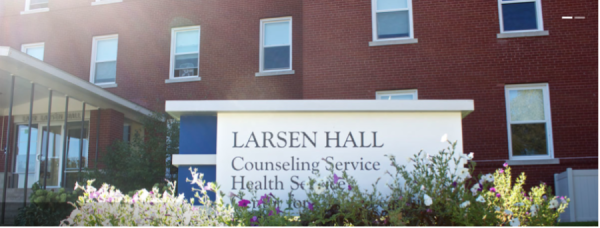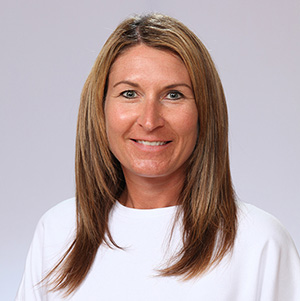Women’s History Month Alum Panel: Living a Feminist Life
Four Luther alumni returned to campus for a discussion to connect and converse about feminist ideologies in the workforce through the panel, “Living A Feminist Life.”
Hosted by the women and gender studies and identity studies departments, this event was part of the Women’s History Month celebration. The panel was moderated by Associate Professor of Philosophy and Identity Studies Holly Moore, and featured insights from four alumni: Gracie Coletta (‘14), Wylie Cook (‘18), Marley Crossland (‘15), and Margaret Kienitz (‘16). The panelists focused on how they are incorporating a feminist lens to influence and guide their lives.
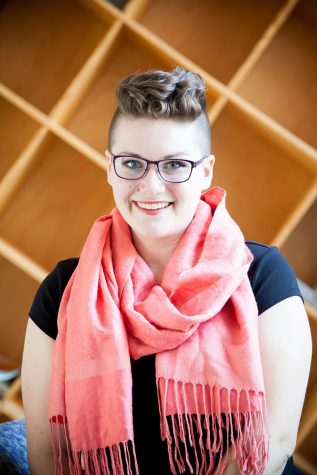
Moore and the panelists cited the diversity of a liberal arts education, as well as the passion that women and gender studies, identity studies, and political science plants in people, as the source of their successful careers.
“I was a feminist before I was at Luther,” Coletta said. “I just didn’t have the language. When I was a sophomore at Luther, I joined Luther Feminists Club and realized ‘Okay, I’m a feminist.’”
This was especially true for Kienitz, who graduated with a degree in political science from Luther and now works as a Grants Manager for the non-profit law firm Mid-Minnesota Legal Aid. Originally seeking a career centered around advocacy in abortion access, Kienitz made a shift to work in disability law and advocacy.
“Coming out of Luther, I realized what I’m passionate about is people’s control over their bodies,” Kienitz said. “Abortion access is a great example of that and opens the door to different ways that people’s bodies are controled. I am interested in politics and know everything’s political– especially bodies.”
Kienitz went on to credit her liberal arts education in multiple focus areas of study as being one of the biggest assets to her upon entering the professional field.
“My study of sexuality, of sex and gender, of all those things, which I really manifested as abortion access in my undergrad time, gave me the tools to find something else that was using those same ways of thinking, those analytical tools,” Kienitz said.

Moore posed the question of what living a feminist life meant to each participant. All panelists jumped in and described feminism as a mindset, rather than a completed agenda. They defined feminism as constantly evolving, because all of their individual definitions of feminism evolved during their time at Luther, and even more so upon entering the workforce. Cook and Crossland explained how their feminism changed when they started working in male-dominated industries. Because of their jobs, their feminism became more about resistance and persistence.
“Living a feminist life, for me, means whenever someone wants to give me a perscriptive way of doing something, I’ll do it the complete opposite,” Cook said. “After college I was supposed to get a job; I went to seminary. When I was in seminary, they told me I have to study to be a pastor in the church one day; I started to have meetings with politicians and I [went] to Poland for the climate change negotiations. [My feminism] has always just meant questioning why do things have to be so prescriptive, and asking questions.”
The panelists also discussed the impact studying women and gender had on their career’s direction and development. Each of the alumnus related to being intentional about diversity and inclusion in the workforce. As an operations manager in an industry heavily dominated by men, Coletta tries to bring inclusion into her everyday work life.
“I feel like my education gave me the tools to analyze situations in a whole new way,” Coletta said. “I was already pretty passionate about inclusion, but entering the workforce, I kind of saw it from a whole new perspective.”
At the end of the discussion, the panelists restated their thanks for the education that each of these alumni received at Luther, whether it was women and gender studies, identity studies, or political science. The instruction and nurturing received during undergrad has impacted how they see the world through a feminist lens. The careers represented in the panel range across the board of professions. The Luther alumni ended their discussion reiterating that feminism continues to shape the decisions they make everyday in their professional and personal lives.

